Today we want you to help us find dialectal words and expressions, preferably quirky ones! We're planning to write a blog post about words and expressions in Swedish dialects, and we want your help. We're doing this together, so get your hands dirty! Next weekend we'll publish the post and by then we hope to have lots of words, expressions and crazy stories about hilarious situations filled with misunderstandings! Until then, I'll share some experiences from my childhood in Skåne ...
Table of contents
Swedish is full of dialects
It is often said that Sweden is an elongated country, and this is very true! The long geographical distances may also contribute to our varying dialects. It sounds very different if you are in Norrland, in Gothenburg, on Gotland, in Skåne or perhaps in Älvdalen. Not to mention the Swedish dialects that exist in Finland, of course, including in Ostrobothnia. And what the heck do these dialects sound like?
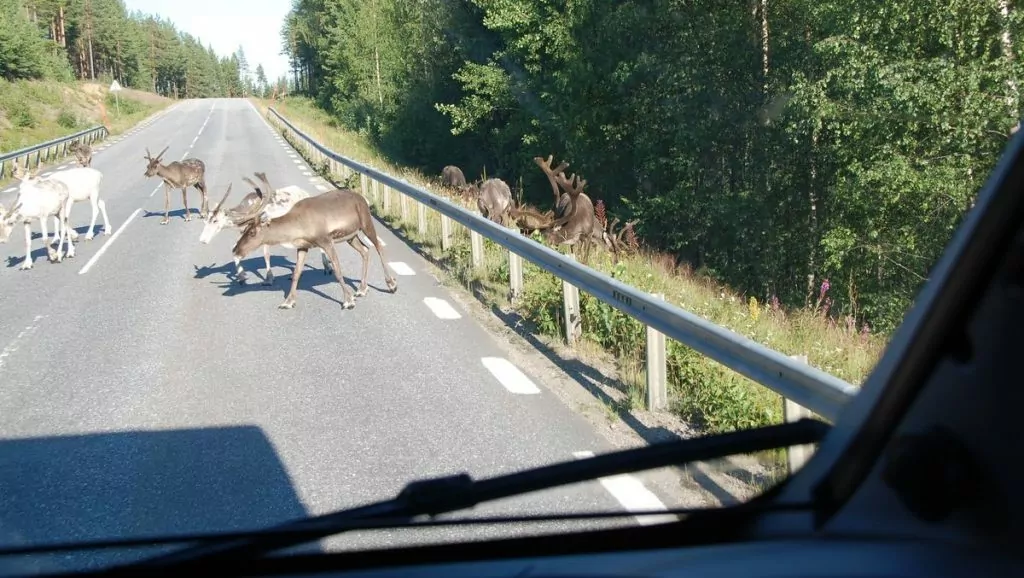
Moving from Skåne to Stockholm
I (Helena) come from Skåne, and when I moved up to Stockholm at the age of 14, I was faced with many "strange" words. Things simply weren't called what I was used to back home in Skåne. Those Stockholmers talked a bit "weird". From another perspective, perhaps it was the words I used that were "strange".
Skånska is actually several different dialects, and I should perhaps tell you that I was born and raised in Lund. Dialectal words can also change over time, and my memories of "language confusion" stem mainly from the late 1980s. In any case, I will tell you about some words that I found strange in Stockholm, and which dialectal words I was used to.
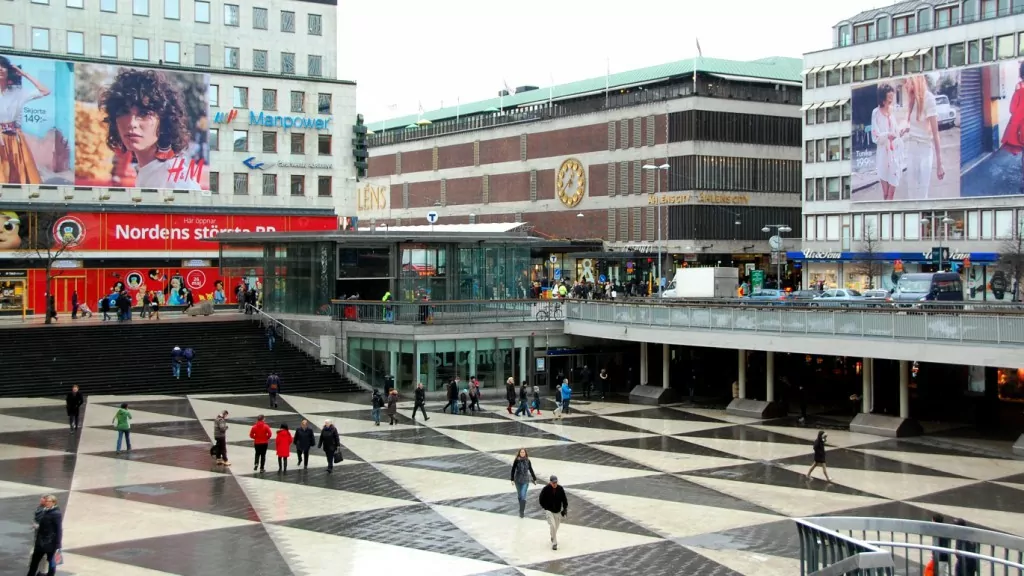
Dialectal words from Skåne
I met some strange words in Stockholm as a 14-year-old, but the Stockholmers probably thought what I said was even stranger. Some words I had to quickly get used to were:
- Panna (saucepan)
- Restraint bubble (semla)
- instep (hink)
- Maize fire (May fire)
I still think "saucepan" is one of the most laughable words I can think of. Seriously, listen to that word! I also think it feels a bit silly when you look up at a big fire and call it a "bonfire". For me, a bonfire is still something very, very small that you light in a stove ... Other words I remember from Skåne are:
- Hialös (restless, impatient)
- Rälig (disgusting)
- Flabba (laughter)
- Rolling burden (wheelbarrow) - we probably didn't use this particular word very often, except that it was a bit funny to call the manure wheelbarrow in the stable ...
- Possible (fertiliser hopper)
- Cockaigne (cola)
- Pushing (skipping school ... and of course I'm only talking about things that others did, haha)
I can also tell you about the time when my mum (who comes from Halland) went to buy a potato press in Skåne. It took a long time before the salesman understood what she wanted, but finally he said (in broad Scanian) "Oh, a pear press, why did you say that at once?".
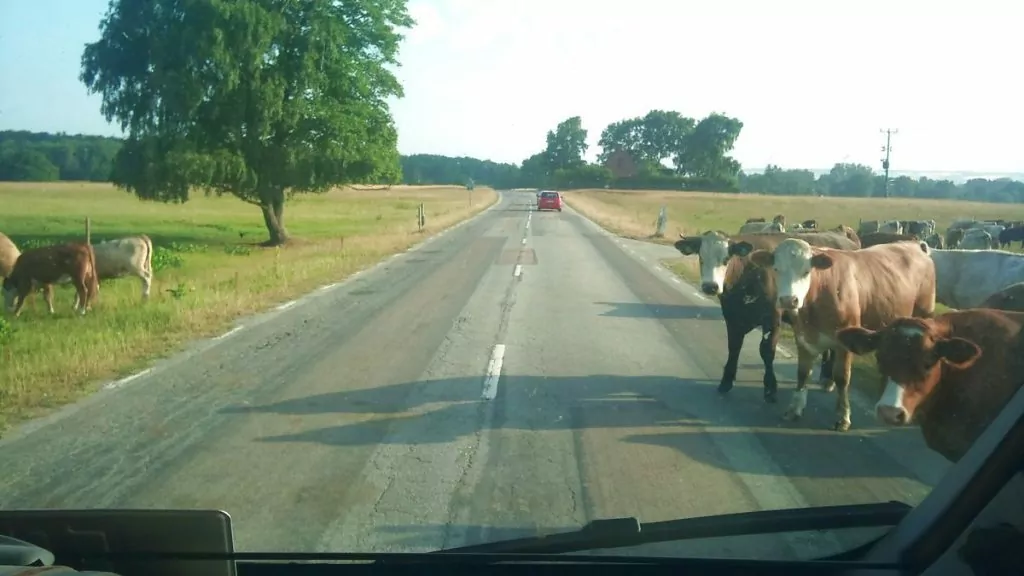
Tell us about dialectal words and expressions!
Now we want to hear about all the dialectal words and expressions you have heard or perhaps used in Sweden or Finland! Please tell us what the words/expressions mean and where you have heard them! Of course, if you have a story about a misunderstanding or a hilarious situation, that's a wonderful bonus! Write down your funny experiences in a comment. We will collect it and publish a post next Sunday (25 November).
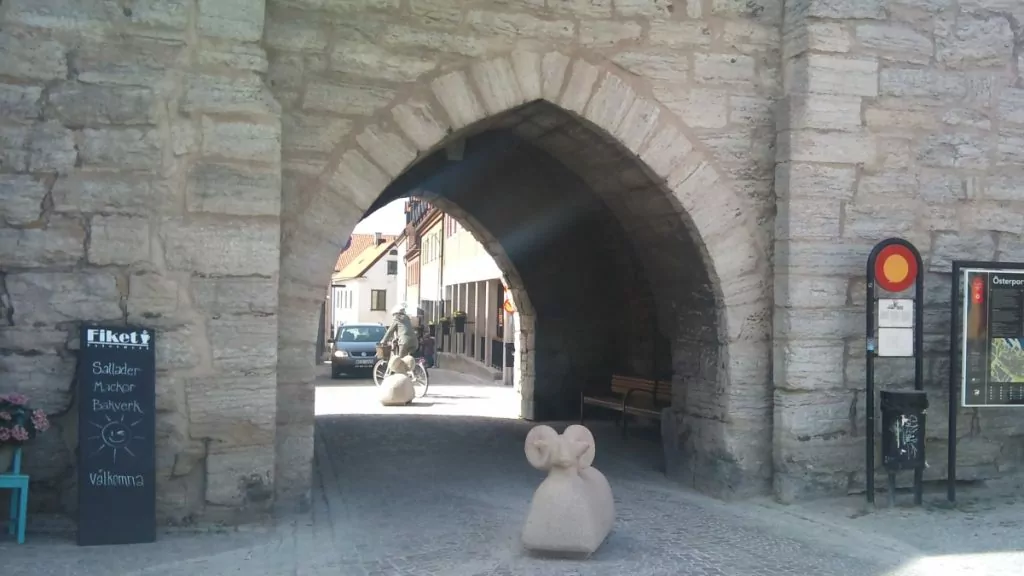


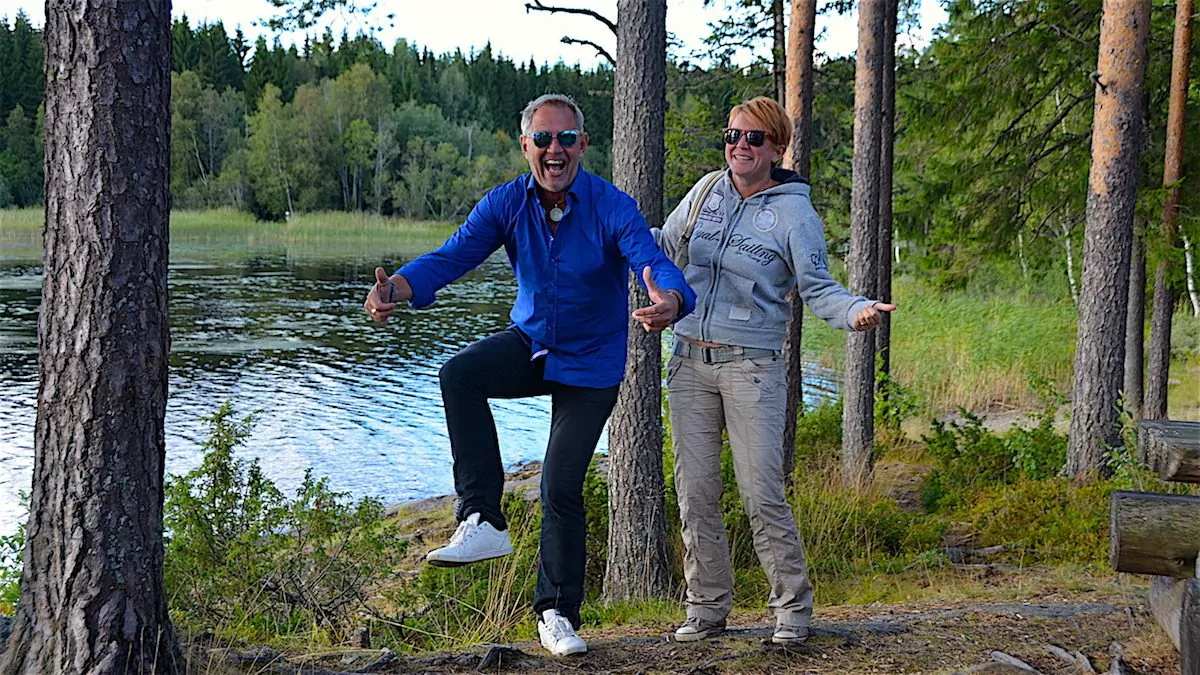






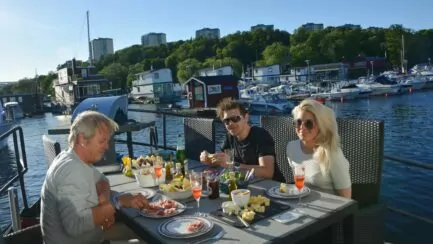
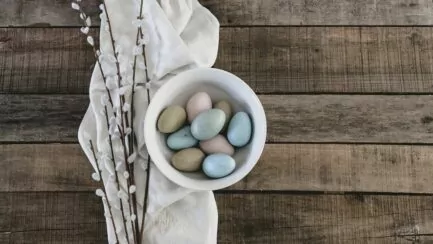
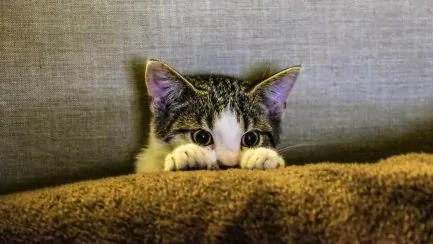



Emma, sun like sun? says:
Flabba they say, meaning me, even in Stockholm. At least we did, growing up just south of there.
But there was a word I said to a girl from Dalarna that she didn't understand at all. What was it then ... Yes! I said "Can you bring me that?". and she didn't understand what a shoe had to do with it.
Of course, sowing something means throwing something away.
15 November 2018 - 8:09
Helena says:
Aha, flabba maybe they say in more places? I haven't heard it since I moved from Skåne. Sula haha, I understand that, but it's probably not something I would say myself. Thanks for the contribution! 🙂
15 November 2018 - 16:43
Only British says:
Yes, sula is common in Sörmland. I have heard Flabba everywhere I have lived (Stockholm, Västervik, Gothenburg, Malmö...).
16 November 2018 - 10:13
Helena says:
Ah ok thanks! 🙂
16 November 2018 - 18:59
Only British says:
Yes, sula is common in Sörmland.
16 November 2018 - 10:08
Elisabeth says:
In these times, when lips can easily become chapped, the pouting is needed, both in south-eastern Värmland and on the west coast, where this Värmlander now lives.
Translation?
Cerat to the mouth!
Great idea - looking forward to the post!
15 November 2018 - 8:40
Helena says:
Wow, I had never realised that!!! Thanks for the fun contribution! 🙂
15 November 2018 - 16:43
Ama de casa says:
I love dialects - it will be fun to see what words pop up here 🙂 .
15 November 2018 - 8:59
Helena says:
We are also looking forward to this 🙂
15 November 2018 - 16:44
Lena - good for the soul says:
But ohhhh what fun. I love words and expressions! This is going to be really exciting.
Even I (born and raised in Uppsala) used flabba as in laugh. However, I used push as in run. And saucepan, now that you mention it. Pretty weird word! 🙂
"I worked with a girl from Örnsköldsvik who said 'I'm going to do this. It's nice to have it done away with". For me, "done away with" means making a fool of yourself, doing something embarrassing/stupid. But to use it in her situation is actually perfect if you look at the word.
Then I have a hang-up about something that is not really dialectal. It is if you say that you "go home" when you go to your parents. When I left home, that was my home. I say I go "to my parents". I tried to do an extremely unscientific survey at Skanska's finance department (about 30 people) a long time ago. I tried to find a common thread in who said "home". It was not only those whose parents still lived in the house they grew up in. They were not only those who moved to another place and went "home". It was not only those who had a very close and loving relationship with their parents. It was not those who came from the same geographical area. And so on, I didn't succeed. And I still haven't succeeded. You can say what you want, of course, but for me my home is my home, not my parents' home, even if they still live in the house I grew up in.
Oh yes, all these words like klöpp (cut), tröck (pushed), rös (shook), lös (shone), egenkligen (really), ordenkligt (properly), var är tröjan (where is the shirt).
I can deliberately use made-up words in my blog or make up words, just because it's fun. And even direct errors slip through sometimes 🙂 .
Hug Lena
15 November 2018 - 9:00
Helena says:
But how nice to hear about your experiences! Run!? Now I remember that we said "cube" about running! The thing with "removed" was also interesting! Have seen that someone else has written about it. I would perceive it as making a fool of yourself haha 😉 😉
The "home to your parents" thing, could it be related to moving away from your home town so that you feel like you are going "home" to your old home town?
That thing with "kläpp" and "tröck", where do you actually say it ...? Actually, I thought it was a misunderstanding, haha, but maybe it's a dialect? Thanks for the interesting contributions! 🙂
15 November 2018 - 16:49
Gunnel says:
"This is where you come when you come home," sings Euskefeurat, referring to childhood homes, environments, activities and people.
And they don't mean Norrland (from Gävle to Treriksröset, that is) but Norrbotten.
22 November 2018 - 17:52
Ann-Louise says:
What a fun idea! Here are the Småland expressions that come to mind right now. My poor partner, who is from Stockholm, had some difficulty understanding me in the beginning, even though I don't use all the expressions myself.
Stool samples = nonsense
Bad = dirt
Krösamos = lingonberry jam
Sulle = Would (my grandfather's favourite sentence "Va sulle i där å göra" which then means "What would you do there". and which he used every time we went outside our home municipality. He liked to use it in combination with "Va ä dä fö stollaprov?". In other words, it was not from him that I inherited my wanderlust).
Rösen = Frozen
Raw = Find the way
Hia dig = Calm down
Lu = Boy
Hie = Messy place
Dän = Away ('ta dän' = 'take away')
Speta = prick (when you get a prick in your finger)
You say "the bike" and "the key" etc. instead of the bike and the key.
R does not sound very good, which we Smålanders celebrate with cake on the "fössta tossdan i mass" every year.
15 November 2018 - 9:28
Helena says:
But how interesting and fun! Many words that I have never heard, fun! They say that in Eskilstuna too. I recognise that with the bike from Skåne 😉 Thanks for the contribution!!!
15 November 2018 - 16:51
Mr Johan says:
And in Malmö they complicate it by saying the key and the triangle (famous shopping centre).
The fact that Skåne's tongue root R disappears before reaching Stockholm's tongue tip also applies in Halland. Think of handball Bengans Gurkburk "guekbuek" or that the locals in Varberg cannot say r. Vabej
15 November 2018 - 18:33
Helena says:
Haha yes, absolutely true! I like the spelling of guekbuek 🙂 .
15 November 2018 - 21:03
Therese says:
Oh what fun! I was born in Jämtland, raised in Sthlm and live in Gbg should have as many as possible in stock ?
"Hä" (or "he" depending on where you live) is a very useful word, it means to place, put, position. "Gatt"=to be forced to. These are probably the words I come up with from home (Jämtland) that people simply do not usually understand. By the way, I remember once when my grandmother was down in Stockholm on a visit and we went shopping. She asked the staff where they had the "pear" (potato). They looked at her a bit strangely for a few seconds and exclaimed "Ah, you mean the pears! Here they are!" Otherwise, unfortunately, I have not been involved in so many funny misunderstandings. My partner from Gbg says really funny things all the time, but of course I can't remember any of it right now.
Interesting reflection by the way about going home in one of the comments. I thought a bit about what I am saying. I "go home" when I go to visit family, but I think I'm referring more to "home to the village" rather than home to a specific house. I think. Because I also realised that I call where I am "home" ?. If I stay in a hotel, the hotel is "home".
15 November 2018 - 9:36
Helena says:
Wow, there were a lot of things I had never heard of! Hä and gatt were completely new to me! I recognise the part about pears, it feels like they say it in several places in Sweden. Incidentally, I also thought a bit like you with the home thing, that you might say it because you are going "home" to the town?
15 November 2018 - 21:05
Mr Nils-Åke Hansson says:
We moved to Skåne in 1984. I met a lot of people immediately through work. But I never found the dialect annoying. I myself have a distinct östgötsk dialect.
But my children: The happier ones =Didn't slip, Ida came in and said that the neighbour has a pile of newspapers on the couch, So pile of newspapers.
Säja from Säja to also differs from uppsvenskan.
15 November 2018 - 9:40
Helena says:
Bunke in that context, I haven't heard that. Skånskan comes in many variants, it feels like 😉 Say from and say to? Hmmm, now I have to think ... Where is it called what?
15 November 2018 - 21:07
Mr Nils-Åke Hansson says:
The neighbour always told us to let him know if we wanted more,
Kamma daj = pull yourself together
16 November 2018 - 10:26
Helena says:
I also think it sounds completely normal to speak up 😉 Kamma daj...? Haha, I haven't heard that!
16 November 2018 - 19:00
Gunilla Utterström says:
Orkehull. Very useful word if you have gained weight !Always good to have.... There is a book Halländska ord och uttryck I think it is called.
Gunilla
15 November 2018 - 10:06
Helena says:
Orkehull, what a great word!!! 🙂 Thanks for that!
15 November 2018 - 21:07
Mr Steve says:
Great post. It is wonderful with dialects. I published the poem "Ate the holiday" by Nicke Sjödin who I had as a teacher in the 60s in Sollefteå in this post : ( https://stevereflekterar.blogspot.com/2017/07/sa-har-i-semestertider.html#comment-form ) last summer.
Now I was so captivated that I will probably return with a further comment with words/expressions that I remember from my childhood in Ångermanland.
15 November 2018 - 11:50
Helena says:
Fun with texts in dialect! Different to see it written! 🙂
15 November 2018 - 21:09
Maria's Memoirs says:
What a funny post! In Ostrobothnia we also say fastlagsbulle, which is funny because I thought it was typically Finnish-Swedish! Semla in Finland is fralla in Sweden. Hink is ämbar in Ostrobothnia, although quite a few people probably use the word hink as well because we are influenced by Swedish TV etc... (And you can try to guess if I mean the Swedish "nog", or the Finnish-Swedish "nog" ;))
We also say graveyard instead of cemetery.
Rotten = confused, untidy
Morning meal = breakfast
Vappen = May Day evening
Just as some examples 🙂
15 November 2018 - 12:19
Helena says:
I think I remember noticing it at some point, that they say fastlagsbulle in Ostrobothnia too! I remember that I was also surprised then, because I thought it was only Scanian / South Swedish 😉 Gravgård was a nice word I think! Peter also says morning meal (but he comes from Stockholm so I don't know why ;)). A colleague of mine who comes from Åland told me that they say high and low bed instead of bunk bed there. Do they do that in Ostrobothnia too? Thanks for your contributions! 🙂
15 November 2018 - 21:11
Maria's Memoirs says:
We say high bed too. But I have not heard anyone say low bed. If it's a low bed, it's probably just a bed 😉.
16 November 2018 - 11:54
Only British says:
I love Finnish-Swedish. You have preserved words we no longer use - ämbar, for example.
Fastlagsbulle is probably also such a thing. Semlor is also bread in German so I don't know when we switched. The Finnish phone booths' "don't break" are wonderful.
16 November 2018 - 10:22
Helena says:
I also like Finnish-Swedish! Ämbar is nice! Fastlagsbulle is said in Skåne too! 🙂
16 November 2018 - 19:01
Maria's Memoirs says:
Another thing I remembered: at least previous generations in Ostrobothnia talk/talked about "farmabyxor" (jeans). Something I would never think of saying, but my mum asked for just such trousers in a shop in Stockholm when I was quite small, and I thought it was so embarrassing that she couldn't speak understandable Swedish, haha 😀 Personally, I've always thought that farmabyxor (or farmaböxor if we're going to use a proper dialect) sounds like "something farmers say", but what do I know, maybe it was/is called that in the cities too. I don't even know if people say that anymore, because I never hear it and even my mum calls it jeans nowadays.
15 November 2018 - 12:28
Helena says:
Farmer's trousers, what a funny word! I understand that it is a bit old-fashioned, but fun to hear about! 🙂
15 November 2018 - 21:12
Maria's Memoirs says:
Well that word is probably about to disappear completely I think.
16 November 2018 - 11:49
åsa/nalta norrland says:
So happy, now I'm getting sheepish 😀 I'm really looking forward to this post.
Born a klyktattare and living in Lappskatteland 😉 so I speak pure root language 🙂 otherwise I'm not very nice...
nalta = harta tå harta å harta tå dä = half of half and half of that
Harta washed in
Hembögda beste plassen på jola = hometown, best place on earth
Åtabak = backwards, but also off-centre... e.g. the sweater is Åtabak
Then a button can be oi = unbuttoned
Speaking of going home... I don't say I go home when I go to my mother's, but if I were with you and we were somewhere out and going back to your houseboat, I would say we go home...
Unfinished = not done
Disposed of _ done, finished with the task
Then again, I'm a laggard... that is, I don't eat just anything 😉.
Yes, but yes, I probably speak partly Swedish and partly Norrlandic.
15 November 2018 - 14:00
Helena says:
Encyclopaedias!? Wow, this was exciting! Nalta ... I didn't really understand that? But becomes curious! Åtabak was a charming word I think 🙂 Can agree with you a little in the thoughts about "home". I sometimes say "home to the hotel" if we live in a hotel 😉 Unmade I also say, is it dialect? However, I do not say removed, but read about it earlier in the thread! Lagran ... is it then picky? Thank you for your contribution Åsa!
15 November 2018 - 21:16
Mr Steve says:
Hello again!
I have searched my memory and here are a number of more or less incomprehensible words from Ångermanland. Some probably also used in neighbouring regions such as Västerbotten. The spelling may vary slightly as well as pronunciation and emphasis. The list was long, but that's how it tends to be when I get started.
hoven droven = no order/noise pollution
remember = shudder
hä åvä = put away
fin oppi yga = beautiful
live on = make noise
åtabak = backwards
trouser pocket = fly
cutter = male cat
kangero = spindle
bent = awkward
polemasa = work slowly
böglä = buckle
jäckes = to tease
troubled = unsure
jeck bet = failed
ermine = deplorable
sweater = afraid of the dark
jett = forced/must
amp = anxious
dry toe = wipe off
pushed = kicked
the growl = the coffee grounds
slop bucket = waste bucket
marnomt = always something
boa = shop
harta borti harta = one quarter
on the run = under the influence of alcohol
mashed potato = mashed potato
karusha = rubber band
beak = grumpy
raw road = cope with
rate = rubbish
aching = gassy stomach
darmä å = faint
busy = doing something that takes a long time
uncomfortable = unpleasant
secasam = slow
ovölen = careless
now = bad
tjå dä = take it easy / wait
lang oppi syna = surprised
klater = hassle
15 November 2018 - 16:05
Helena says:
Oh what fun! Wow what a list!!! Many words here are completely new to me. I would not understand many of these at all! The buckle was quite clever! 😉 Spider is actually called könguló in Icelandic, so that particular word felt a bit familiar. Many thanks for the contribution!!! 🙂
15 November 2018 - 21:20
Maggan and Ingemar says:
Fun with dialects and words. At the age of 15, I came from Sörmland to Medelpad and Timrå, where my parents had moved. I got to know a girl of the same age in the same block of flats where we lived. When we met on the stairs, she said "goodbye" and I thought that sounded so strange because we met then. It felt a bit backwards to say that. The word "hugaligen" also appeared and meant "so terrible" or something similar. I'm sure there were other words that I reacted to, but I don't remember them today. Funny post this with dialects / words. I myself have had difficulty many times understanding friends and relatives who are from Skåne, with their pronunciation. I myself feel that I now speak "rixsvenska" if you can call it that. I was born in Stockholm, grew up in Östergötland, Sörmland and Medelpad, and as an adult lived in Bohuslän and now Västergötland.
15 November 2018 - 17:40
Helena says:
Goodbye when you meet? Oh, yes it would feel strange 😉 Hualigen or huvaligen I have probably heard sometimes ... What a mix you have with you! Maybe it will be national Swedish then 😉
15 November 2018 - 21:22
Maria's Memoirs says:
Now I'm interfering again - some people in my region (Ostrobothnia) say "hejtå" when they meet (i.e. goodbye in standard Swedish).
16 November 2018 - 11:45
Big brother says:
As a Lund resident with parents from Halland, we never learnt any real Scanian. Akademiska Lund is a bit like Lidingö touch in Scanian. So I can't seriously say. Hossorna is there her. "The socks are over there".
We should not try to understand the grandparents of our childhood friends from Lönsboda.
15 November 2018 - 18:43
Helena says:
Haha, it's true! The most Urskånska I said was probably that I said "Yes" with a Scanian pronunciation, I would have a hard time saying that today and feel comfortable with 😉 Perhaps I got a little more Scanian in the stable than at home, but no, I have not said either the hoss or the key 😉
15 November 2018 - 21:24
Eva/Leva as Eva says:
I can contribute a few words from the noble West Gothic language:
Annevessare : different
In vale mé: occasionally (sometimes in vale mé)
Island drip: roof drip
daramor and darafar: nearest neighbours, i.e. mother and father next door. Can be lumped together in the word 'daras'.
teress: ready ( Are you ready: "Are you interested")
Hälta: half, as in the Tidaholm speciality 'Hälta-hälta': hot dogs with half mash, half fries.
A personal favourite expression that we still use in the family once in a while is my grandfather's "wimpy": if you have nothing to do, you are wimpy, idle. It was his biggest fear, and has probably been passed on to me 🙂 .
15 November 2018 - 19:34
Helena says:
Wow, interesting! What different words! It feels like I wouldn't understand anything at all 😉 "Hälta-hälta", haha fun! Göralöser was also a clever word. Thanks for the contribution!
15 November 2018 - 21:26
Maria / Magnolia Magis says:
Hi, sweetheart! That's great! ;D ..but I would like to have less of mine...
16 November 2018 - 17:33
365degrees says:
How fun would it not be with a video post where you have an oral review with these words and expressions that you are advised about. Can be hysterically funny 😀
15 November 2018 - 19:42
Helena says:
Haha, that actually sounds hilarious! How will we be able to pronounce all this... We'll have to take a serious look at it, haha 🙂 ðŸ™'
15 November 2018 - 21:27
Maria / Magnolia Magis says:
Have each person record say 30-60 seconds...
But it would be fun to hear you first!!;D
16 November 2018 - 17:38
Helena says:
Haha, we talked about it yesterday! 🙂 Very fun idea, but maybe not so easy to achieve 😉.
16 November 2018 - 19:02
Maria / Magnolia Magis says:
Nothing is impossible! Miracles just take a little longer... ;D
16 November 2018 - 22:45
Matts Torebring says:
I was thinking about this very thing a few weeks ago...
How is the beer, said the father often = How is it made, or how is it constructed.
Then you have received so many answers, that there is no need for more
15 November 2018 - 19:49
Helena says:
I hadn't realised that, so thanks for the translation! 🙂 Yes, wow, there have been a lot of funny words!
15 November 2018 - 21:30
Kenneth Risberg says:
Ha, ha you guys are funny.
I'm from Värmland, but I'm slowly forgetting these things. I can still express myself in Värmland when I talk to my relatives.
Some words I still remember:
mind=arg
a toe tag e = one of those you know.
feschlig=feg
glint=halt
barefoot= barefoot (i.e. not born in a bar)
even=only (to even/only retrieve)
ränndreta=diarrhoea
glûnner=stirrer - (glönner)
kääri=manly (don't know how to put it together)
head=an idiot
pocka=having to do something
This is real Värmland and it becomes even more difficult the closer you get to the Norwegian border. From my area around Karlstad it was not so violent but I used several of these in my everyday life then.
15 November 2018 - 20:44
Helena says:
Haha, good thing you don't talk like that when we meet Kenneth, then we wouldn't understand a word 😉 Thanks for your contribution!
15 November 2018 - 21:33
Maria's Memoirs says:
So I find something familiar in almost all dialects, haha! "En tåcka e" is about the same as "en tokodee" in Ostrobothnia 😀.
16 November 2018 - 11:41
BP says:
God sooooo much fun! See that you got lots of suggestions! There will be some (fun) work for you to compile. Hahaha:-)
Here are two contributions from my side (it would have been three, but I saw that Nalta commented with the subtitle in his header:
Pumla (Christmas bauble)
Ids int (can't be bothered)
15 November 2018 - 21:07
Helena says:
Haha, yes, I don't really know how to compile it ... but it will be fun! Thanks for the words ... but what dialect is it in?
15 November 2018 - 21:34
BP says:
Norrländska of course! But a former Scanian doesn't understand that;-)
16 November 2018 - 1:02
Maria's Memoirs says:
We also say Ids int in Ostrobothnia 🙂 .
16 November 2018 - 11:31
Maria / Magnolia Magis says:
and I don't know how to speak West Gothic...
16 November 2018 - 17:41
Helena says:
Thank you!!! Haha, no exactly 😉 Ids not seems to be said in more places if you believe the comments! 🙂
16 November 2018 - 19:04
mock says:
there is no norrländska - lots of different dialects in norrland. ....... send out the question of what a Christmas bauble is called .......
there are few who would talk about sörlänska or how even though it is only a third of the country... have to be a sörlänning to not hear the difference between an overkalixbo and kalixbo ... two different languages.
All Norwegians who say they speak Norrlandic - shame on them!
21 August 2021 - 19:24
BF says:
Maybe I haven't seen all the comments - but I don't think the Leksand case has been represented yet.... 😉 Here are some words:
Coupling jerk - spindle
Queue what
Cooler - children
Kölla girl
Tarv- hungry for
Karug- very male
Cure - choir
Sex drive - weird
Jönug - a bit pompous
Fäjsä barn
Jolpärur - potatoes
Jella- elda
Tryja jersey
15 November 2018 - 21:49
Helena says:
Oh, thank you so much!!! 🙂 What words! Don't think I heard any of this before... Fun!
16 November 2018 - 19:05
Anonymous says:
The goal of the beer we have is to reach the goal. Both in the field and in the country.
(Many of the words are found in other dialects as well, both below and above in the country).
17 November 2018 - 20:44
Britt-Marie Lundgren says:
What a funny post. We are real West Germans with a dialect that is not beautiful but it is ours. Right now we don't have time to think about special words and expressions (being on the road is not a holiday???).
16 November 2018 - 5:47
Helena says:
Haha, no travelling is not always a holiday 😉 Enjoy your trip!!!!
16 November 2018 - 19:05
Birgitta says:
Thank you Steve and Åsa for all the familiar words from us in northern Sweden.
I find that I very often use the letter O in front of many words. Unmade, unspoken, unseen, etc. It's very convenient. And we shorten words (listen to Ingemar Stenmark). Also very convenient.
We celebrate Stugsista on the coast of Västerbotten and the coast of Ostrobothnia on the last weekend in August... If you come a little more south in Norrland, it is called Lyskväll. What is it called in Götaland?
I enjoy following Fredrik Lindström's programmes on dialects on radio and TV.
16 November 2018 - 11:14
Helena says:
Interesting about the "o"! I also use the word undone. Like "I would like to have this undone". But osprunge ... no, what does it mean? 😉 What is stugsista ....? *Nyfiken*
16 November 2018 - 19:07
Birgitta says:
We put an O in front of a past perfect tense very often. Osprunge is that I haven't spung yet. In national Swedish they do that too, but not as much as we do. And then we shorten the word at the end.
Stugsista and Candle Night are probably almost only found on the coast in northern Sweden and Ostrobothnia. In the past, people always winterised their summer cottages on the last evening of August. The cottages were so "airy" that you couldn't go to them during the cold season. They would make a big fire near the water to burn everything for the winter.
On our cabin island, we can actually see bonfires from Finland. And surely they see our fire even though Norrbyskär is only 3 km from the mainland.
20 November 2018 - 10:10
Veiken says:
Hold on to your hats, here come the words of Gothenburg:
First of all, NEVER say Jötlaborg! No native Gothenburgers say that. It's usually Stockholmers who want to pretend!
* Bamba school meals
* Knô_ crowding
* Knocking - putting things together
* La-Vel
* Brôta - Making noise
* Duck - as well as
* Round piece of bread
* Bala (first a as in beautiful) - Drinking
* Open - wants everything
* Swallow- Stairwell
* Svallag - stairwell neighbour
* Lunta - frequent fires in spring in nature
* Exter _ Dummies
* Are you good or? - Are you crazy?
* Are you good or not - Well done!
* Tetchy - weird, strange
Vassego!
Here you got some typical words that I often use in my daily speech. There are many more, but I'll stop there! 🙂
16 November 2018 - 11:36
Helena says:
Thanks Veiken!!! I remember when my second cousin used the word "bamba" when we were children. I understood NOTHING, haha 😉 Knöka feels relatively familiar, maybe from Skåne? Rundstycke is understandable, but I wouldn't say it myself. I have not heard Svale, but on the other hand svalgång 😉 Thank you! 🙂
16 November 2018 - 19:09
Only British says:
This could be long...
It is not only large distances that create dialects. Look at the Elvish dialect in the centre of Dalarna. Belgium as large as Småland is a prime example, with many dialects in Flanders alone.
Having grown up partly in Västervik with a grandmother from Vimmerby, I recognise some of the Småland words mentioned earlier ("ta dän", for example), but up there in northeastern Småland there is also an influence from Östergötland and their own words.
"Tvi vale" and "uschale" are common expressions for something scary/disgusting. To make a mess is to "turn over".
"Oh dear child in the choir" (church) is an exclamation of surprise/pity when something goes wrong for you or the person you are talking to. Perhaps not as common for today's secular generation as the older ones.
My mum from Gävle always talks about how "grina" means completely opposite things in Gävle and in southern Sweden. Cry or laugh. My father who did his military service along the coast of Norrland always talked about how they made words opposite by putting "o" in front of them. The prime example was "I am okaffedrucken".
When I was a teenager, I lived in Gothenburg and it is a chapter in itself with "knô", änna, åpen, bördig (nice) and bamba.
It is said that Swedes who move to Skåne first of all pick up the Scanian way of pronouncing "yes" and in my case this is true.
My daughter who has been Scottish since she was four years old uses a Malmö slang where the funniest thing I know is "lönt". It's meant to be said a bit sourly and expresses disappointment at wasting time on the wrong thing or a warning not to do so. You also have to get used to the fact that French is called bulle (and that it is eaten "bulle i bulle", i.e. chocolate ball in French).
Personally, I think the old Danish parts of Sweden are also the ones where you "do at" a horse or other things when you do something tidy.
In southern Småland (Växjö-Älmhult), where my grandfather comes from, it is almost a bit English in that they say "so it is" "so she does", "so I will" etc. at the end of sentences to confirm them. There they also call the crow "våtakaja" because it screams when it rains and it is black.
16 November 2018 - 11:51
Helena says:
Absolutely true! Älvdalskan is special and known for that! Interesting that you mention "ta dän" as Småland, I thought it was typical Eskilstuna language 😉 I recognise the grinning thing, I myself probably perceive the word as both meanings actually. I remember the Scanian "yes" that I myself had once upon a time, but it is completely gone now 😉 Bulle in bulle ....!? Is it good????
16 November 2018 - 19:13
Maria / Magnolia Magis says:
What fun it was to read all the comments! My husband and I have a bit of a mixed background with many moves. Myself, my dialect is mainly västgötska, or if you want to be picky: skarabörska. We are from Schövde ...
My husband grew up in Kumla and Örebro. I also have Värmländska.
It's funny when you move around and realise that people don't understand what you say sometimes, because the words are used differently. Recently we have lived for a year in Falsterbo, Skåne and there we discovered this. The first time we went into an absolutely wonderful café, Anna's in Ljunghusen, we were like two question marks: "What do you want on your bun?" it said. Below that were listed cheese, ham, liver paste, meatballs. Really? When we eat buns we want cinnamon or vanilla buns? Then we learned that bulle meant rolls, rolls, etc. Bread, by the way, was not bread in general as we say, but loaves/shaped bread etc.
Ok, once we learnt that, we started looking for more differences. Semla as you wrote was fastlagsbulle. (If you take the semla in a deep plate and pour on hot milk and some cinnamon you get a hot wall. Skaraborg) I asked for bondkaka but at Anna's they didn't know what it was. There were fewer biscuits in general, more pastries.
When we "drive" from home in Skaraborg, we "go" to Skåne. You "stay" at home in Skåne and you "stay" at home in Skaraborg.
When I lived in Värmland, people did not know what ryssta and olle were. We say Ryssta when we shake a tablecloth, carpet, sheet, blanket etc. Olle is not the name but a thick jumper you pull over your head.
On the contrary, in Skaraborg they did not understand when I said 'dret å' or 'höss ärä?' or if you wanted to take it all "höss ärä märä". Värmlänska for shit too and "How is it/How are you?"
No, now the next one can write a little! What fun it will be to read! (If you need a voice sample, you can find it here...) ;D ;D
16 November 2018 - 18:06
Helena says:
I know, so much fun to read the comments! 🙂 You have moved around a lot, so you have some experience with dialects, I understand! Fun this with bulle! Maybe I also perceived bulle differently in the past, I actually do not really remember 😉 Ryssta I do not understand, but my mother said "rästa sheets" and "dänka laundry" (the latter was when she splashed water on the clothes before ironing;)). What fun this is! Voice sample, how do we get it? Happy to receive 🙂
16 November 2018 - 19:16
Maria / Magnolia Magis says:
Just send video or voice recording via SMS or messenger. For example. Then the husband knows more about how you could get it on your site. But can't Peter do that? All the videos he makes? (Oh!! Grandma did too!).
16 November 2018 - 22:55
Helena says:
What fun that your grandmother also thought! 🙂 Very fun idea, and yes, Peter can probably cut together without problems! However, it can be difficult for us to manage it all. It takes more time than you think to inform, communicate and collect 😉 We'll see what we can come up with! Love when it sprays ideas! 🙂
22 November 2018 - 16:43
Maria/ Magnolia Magis says:
Unfortunately, it's ideas that we're best at... And lying on the sofa...?
22 November 2018 - 20:42
Åsa says:
"Tockeranan" or "reranan" means "those" in the part of Hälsingland I come from. "Nu läll!" is also a bit of fun. Instead of "now you'll see!". Or "Men nu läll!" they can mean "but now I think so!"
I don't talk like that anymore as I haven't lived there for 30 years, but sometimes I fall into it, and the thick Ls.
16 November 2018 - 18:24
Helena says:
But wow, pure Greek!!! Exciting! 🙂
16 November 2018 - 19:17
Across the board says:
In Borlänge and Dalarna, there are many expressions. Here is a selection
matdosa = food box (mostly funny because dosa sounds funny in Dalmatian) you can also put food leftovers in a Butt
sulla = spill
sullgucku = person playing
tarv = have never really been able to translate this word into Swedish. It is a verb that means that you look after your own needs first. For example, it is appropriate if someone takes the biggest bun or the last piece of cake without asking.
dän = away ("take dän" we often say)
frusen = frozen
grind = to push food into one's mouth (often 'grind')
Outside of Gävle, where I grew up, we could sometimes get bored. That is, tired of waiting for someone.
17 November 2018 - 8:34
Helena says:
What fun, thanks! Turned out was a heavenly fun word, I have to say 🙂
22 November 2018 - 16:44
Lena in Wales says:
I was going to write some Gothenburg words, but I see that Veiken and I have the same words, so I agree with her.
17 November 2018 - 13:15
Helena says:
Good that there are several who check! 🙂
22 November 2018 - 16:44
Marita says:
So much fun to read the comments. I live in the Vächötska town of Ulricehamn.
Don't push there or you'll sink (don't push there or you'll sink).
Ôfsadrop (Roof drip)
Put deck (Sit down)
Don't push (Don't push)
Tjiligt (Boring)
Potatoes (potatoes)
Seagull ( Mycke)
Bôgda (Village)
There's a lot more but I can't think of anything right now.
It will be fun to read the summary later but you have enough to do.
17 November 2018 - 22:41
Helena says:
Agreed, great fun reading! 🙂 And thanks for even more dialectal words! Many of these I wouldn't understand 😉
22 November 2018 - 16:45
Ewa Hamberg says:
Shawl spinning stands, loose teeth
A woodworker who has his "thumb in the middle of his hand" in woodworking.
Sutra painter, scribbler
The words come from Ångermanland
21 November 2018 - 18:43
Helena says:
Wow what words!!! Thank you 🙂
22 November 2018 - 16:46
Åsa says:
Söderslätt, the southernmost part of Skåneland:
My mother had a habit of misplacing her keys and purse, and from time to time she would get nervously excited about not finding things when she needed them. She used an expression to describe how she would turn the house upside down to find the stuff: "ledegille" - a search that became so extensive that it was like a party. "I didn't find my purse, aaau... sicked ledegille I had!" - I didn't find my purse, I had to look for it!
I have no idea if it was a home-made expression, maybe she was the only one who used it? But saying "legs" and meaning feet was common when I was little. "Aaau va du e skitt om benen!" Meant "My, how dirty your feet are!" To walk on "flat" or on "just the tiles" means to walk barefoot. And then you get a bit dirty.
We also said "We're going to the lake" (pronounced like skön) and meant "We're going to the sea/beach".
24 November 2018 - 12:47
Berit Wallin says:
Can anyone understand what Anna (born in 1895 in Torestorp) means when she talks about a person who is so "God-fearing that
she always walked with clenched hands and nails when she went to MATAVLAN.
28 January 2019 - 22:40